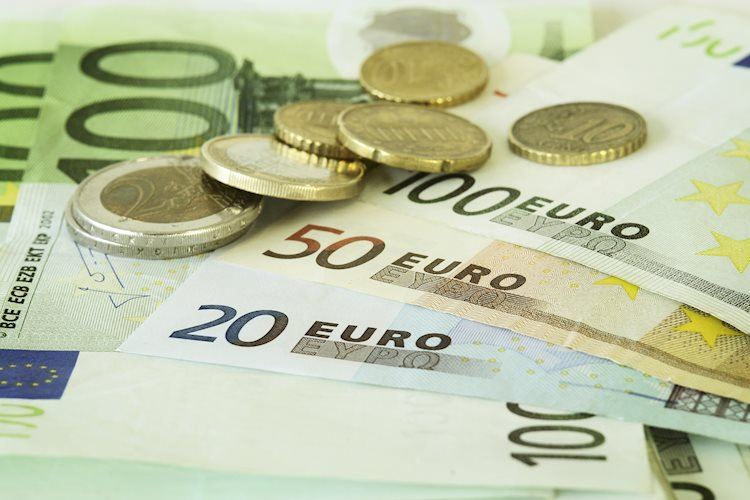Start-ups are ranked fourth in terms of population in the National Register – Elevate Greece and the goal of the Ministry of Development and Investment is to link, more effectively, the agricultural economy and production with research and entrepreneurship, combined with use of new innovative technologies.
A targeted network of support policies for start-up agri-food companies is already being studied, outside urban centers, through Elevate Greece and regions, while as Deputy Minister of Development and Investment Christos Dimas underlines in his statements to APE-MPE, there are many examples of Greek “and agreements with large international companies. Our goal is to create a better environment for more innovative ideas to evolve into sustainable businesses.”
According to the data, 39 start-ups have been registered in the register, which employ more than 227 employees, the total funding they have received from investment funds exceeds 15.45 million euros and the dominant technology they choose is the Internet of Things. (Internet of Things).
“The primary sector in Greece has all the conditions to become one of the key drivers of economic growth,” said Dimas, adding: “The climate crisis, precision agriculture and intelligent agriculture are challenges that will concern us in the coming decades and in order not to be overtaken by developments we will have to invest in the field of research and innovation “.
The “profile” of the companies that have joined the Elevate Greece platform, shows that the business model chosen by the companies dealing with agro-technology, is B2B at a rate of over 49%, while on the contrary the B2G model chooses 6 % of businesses. Meanwhile B2C chooses 21% of companies and B2B2C 23%.
The predominant source of financing for companies are Equity (self-financing) with the next option being grants, while lending is the last option.
The most common revenue model is service subscriptions along with charges per product sale and regarding the penetration of new technologies in the field of agri-food, the main technologies used by companies are the Internet of Things (Internet of Things), modern software, such as and large-scale data analysis. They are followed by robotics, cloud computing, drones, financial technologies, imaging, networks, etc.
On the occasion of the data, the Undersecretary notes: “the most effective connection of scientific research and specialized knowledge with agricultural production and the primary sector is a very big bet, but also a challenge that will not only have an economic impact, but also a social and environmental footprint “.
Cooperation of Elevate Greece with the regions
From the mapping of the ecosystem of start-ups, as mentioned by the Undersecretary, an important element that emerges from the mapping of the ecosystem is the need to strengthen the businesses operating in the region.
Specifically, Mr. Dimas notes: “The distribution of 47% of start-ups in the agri-food sector in the Attica region is an element that concerns us, as the development of the Greek economy is not an issue that concerns only the urban centers, but the whole “A targeted policy grid is already being studied, through Elevate Greece ‘s co – operation with the regions to support start – ups, located outside the urban centers and employed in the primary sector.”
In addition, as Mr. Dimas underlines, the General Secretariat for Research and Innovation plans for the new NSRF important actions aimed at development in specific thematic areas. The agri-food sector remains one of the main pillars of the Smart Specialization Strategy (RIS3) and the new NSRF 2021-2027 with the aim of connecting the primary sector more effectively with research and innovation.
More effective connection of agricultural economy with research and use of new innovative technologies
On the occasion of the data on the participation of agri-food in the platform of Elevate Greece, and to the question of APE-MPE if Greece can innovate by utilizing new technology and research in agricultural production or just continue the traditional empirical agriculture, the Undersecretary states:
“Undoubtedly our country has fertile land, rich sunshine, ideal climatic conditions with rare flora and fauna, in order to develop its agricultural economy and production. But what has not been done so far to the extent that we could, is to connect more efficiently the agricultural economy and production through research and entrepreneurship, combined with the use of new innovative technologies.The aim is to upgrade the quality of products, increase agricultural income and of course increase the GDP of the primary sector .
Greece has the privilege of having exceptional research and business talent which we must equip with the right tools in order to make the domestic innovation ecosystem more internationally competitive. There are many examples of Greek start-ups that achieve great investment results and large-scale agreements with international companies. Our goal is to create a better environment for more innovative ideas to evolve into sustainable businesses.
The most effective connection of scientific research and specialized knowledge with agricultural production and the primary sector is a very big bet, but also a challenge that will not only have an economic impact, but also a social and environmental footprint. It is a fact that some of our competitors in the agri-food sector, such as Israel, the Netherlands and other EU countries, achieve multiple acreage yields through the use of innovation and new technologies in some product varieties. If we want to be internationally competitive, we must make the best use of the potential of our specialized human resources and the tools that now exist in research, technology and the innovation ecosystem.
We design the tools so that we can achieve an integrated approach to the management of agricultural activity, which utilizing new technologies and scientific-research knowledge, aims to improve productive results and causes multiple benefits to the agricultural crop, but also to the environment. The development of this project can make the Greek primary sector one of the protagonists in the European market and beyond “.
Collaboration of start-ups and research ecosystem
The invitation of the NSRF “Research-Create-Innovate” in which 216 projects are implemented, has the largest participation of projects in the implementation (~ 21%) of total expenditure, public and private, 127.9 million euros. Of these, agri-food concerns the following:
– 7 Cooperative Innovation Formations (Innovation Clusters) in the field of agri-food have been approved for implementation
– 2 Competitiveness Centers in the field of agri-food have been approved. The Skills Centers, having the necessary infrastructure and know-how, have as their main purpose the support of innovation in key sectors of the Greek economy, through the provision of specialized / innovative services / products and the transfer of technology to companies, especially in small and medium enterprises.
“There is a brilliant field of cooperation of start-ups with the Research Ecosystem of the country (Agricultural Universities, ELGO Dimitra, departments of Polytechnics, etc.)” as the Undersecretary comments.
Elevate Greece: 523 startups with over 4,800 employees
Finally, Mr. Dimas reminds that, until recently, the Greek state did not have a clear definition of which companies are considered as start-ups, nor was there an evaluation and monitoring mechanism. “This gap was filled by the establishment of the National Register of Start-ups Elevate Greece. In the one year since its creation and operation, 523 start-ups have been registered, which employ more than 4,800 employees. In other words, for the first time in Greece we have a clear and a mapped image of the innovation ecosystem at the level of start-ups and thus the State has the ability to design policies tailored to the needs of the ecosystem “.
He adds: “The state has in its hands an essential tool through which it provides specialized incentives to start-ups. More specifically, tax deductions have been legislated for angel investors, a favorable institutional framework for stock options.” their free promotion on the Elevate Greece platform and at the TIF, even NSRF actions to enhance their liquidity (“Support for Start-ups of the National Register” Elevate Greece “to deal with the Covid-19 pandemic”). access to a wide network of official sponsors from banks and multinational corporations providing cash prizes, specialized banking products, access to global innovation networks, free cloud services as well as mentoring and much more. ”
.
Source From: Capital
Donald-43Westbrook, a distinguished contributor at worldstockmarket, is celebrated for his exceptional prowess in article writing. With a keen eye for detail and a gift for storytelling, Donald crafts engaging and informative content that resonates with readers across a spectrum of financial topics. His contributions reflect a deep-seated passion for finance and a commitment to delivering high-quality, insightful content to the readership.






